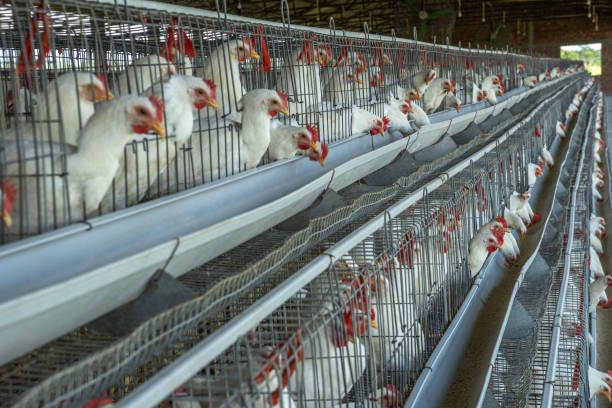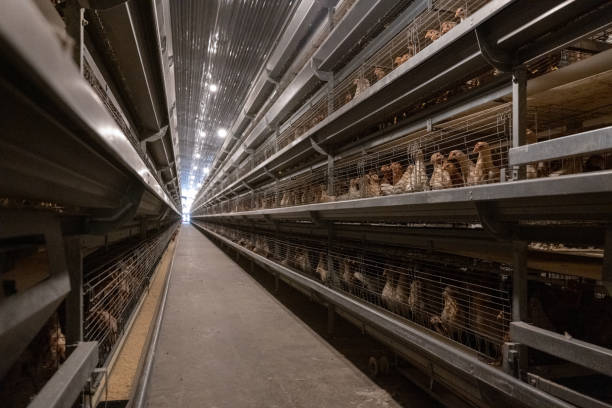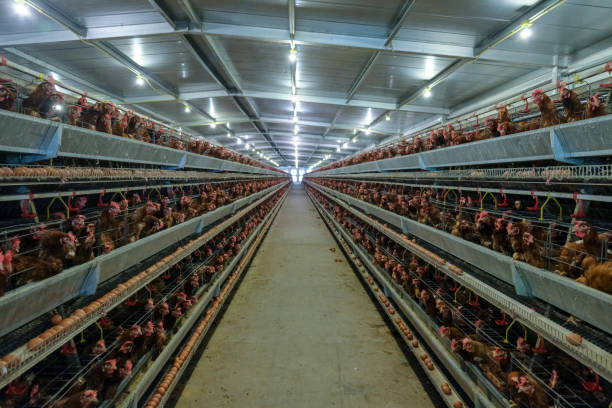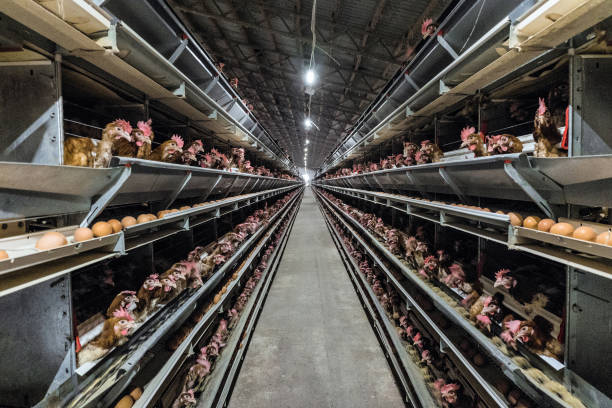
Poultry Farm Waste Management Equipment Suppliers
Poultry Farm Waste Management Equipment Suppliers
Raising poultry at a commercial scale means dealing with a lot of waste. Whether you’re managing a small family-run farm or a large industrial operation, managing manure and bedding materials efficiently is not just about cleanliness—it’s essential for animal health, environmental compliance, and long-term profitability. This is where high-quality poultry farm waste management equipment comes in. As farms grow larger and regulations tighten, relying on outdated or inefficient systems simply won’t cut it anymore. That’s why an increasing number of poultry farmers are turning to professional suppliers who offer smart, durable, and scalable waste handling solutions.
At the heart of every successful modern poultry operation lies a solid waste management strategy—and that starts with selecting the right partner. Not all equipment suppliers are created equal. Some offer generic, low-cost options that may break down within a season. Others specialize in advanced systems designed for real-world efficiency, integration, and longevity. Choosing a supplier with deep industry knowledge, like Livi Machinery from Zhengzhou, means gaining access to engineered solutions that don’t just remove waste—they turn challenges into opportunities.
Why Specialized Waste Management Matters
Let’s face it: poultry waste is messy, smelly, and if left unmanaged, can become a breeding ground for disease. But it’s also packed with nutrients and potential energy. The key difference between a problem and a resource? How you handle it. Proper waste management isn’t just about removing manure from chicken houses; it’s about doing so in a way that supports bird health, worker safety, environmental responsibility, and long-term cost savings.
Traditional methods—like shoveling or using basic scrapers—are labor-intensive and often ineffective for medium to large farms. They lead to inconsistent cleaning, increased downtime, and higher risk of contamination. In contrast, modern mechanized waste removal systems can automate the entire process. Imagine conveyor belts gently pulling away droppings several times a day, or automated pusher systems that move waste out without disturbing your birds. These aren’t futuristic dreams—they’re available today, and they’re used by top poultry producers across Asia, Africa, Europe, and Latin America.
The right equipment does more than clean. It helps control ammonia levels in the house, which improves air quality and reduces respiratory issues in birds. It minimizes moisture buildup, lowering the chance of bacterial growth and footpad lesions. And because well-maintained systems require less manual labor, farms see lower operational costs over time—even if the initial investment is higher. When you work with a supplier who understands these benefits from both technical and practical perspectives, you’re not just buying machinery—you’re investing in smarter farming.
What to Look for in a Reliable Supplier
Now that you know what good waste management looks like, the next question is: who should you buy from? Here’s a reality check—any company can list “poultry waste equipment” on their website. But only experienced, dedicated suppliers will give you a system tailored to your farm’s size, layout, climate, and flock type.
First, look for a supplier with proven experience in livestock or poultry engineering—not just general agricultural tools. Poultry environments are unique: high humidity, corrosive gases, constant movement, and tight space constraints. Equipment needs to be built tough, using stainless steel or corrosion-resistant coatings, and designed with easy maintenance in mind. For example, conveyors should have sealed bearings to resist dust and moisture, while scraper blades need replaceable parts to extend service life.
Second, choose a company that offers complete support—from consultation to installation to after-sale maintenance. A trustworthy supplier will ask questions before quoting a price: How many birds do you raise? What kind of housing do you use? Are you free-range, cage-based, or using a hybrid setup? All of these impact which system works best. At Livi Machinery, our engineers conduct site assessments (even virtual ones) to recommend the most efficient configuration based on airflow, slope, drainage, and daily production volume.
Third, consider scalability. Today, your farm might house 10,000 layers. But what happens when you expand to 30,000? Will your waste system still function effectively? Suppliers who design modular systems allow you to add more units later without replacing everything. That kind of forward-thinking makes a huge difference in return on investment.
Finally, pay attention to how the supplier handles spare parts and technical support. Machines break down—it’s inevitable. But a five-day wait for a replacement belt or motor can cost thousands in lost productivity. A global supplier with local partners or regional warehouses can provide faster response times, detailed operating guides, and video troubleshooting help. That peace of mind is priceless when things go wrong mid-cycle.
From Waste to Value: Making the Most of Manure
One of the biggest misconceptions about poultry waste is that it’s just something to get rid of. But in reality, properly collected and stored manure is a valuable resource. Rich in nitrogen, phosphorus, and organic matter, it’s excellent for fertilizing crops. With composting or drying systems, you can even process it into marketable organic fertilizer—turning a disposal cost into new revenue.
This shift—from viewing manure as waste to seeing it as a product—requires planning and the right equipment. Belt collection systems, for instance, keep manure dry and uncontaminated, making it ideal for composting. Meanwhile, scraper systems paired with anaerobic digesters can produce biogas for on-farm energy use. Some advanced farms even combine manure drying with solar heat, reducing moisture content quickly while cutting fossil fuel use.
Working with a supplier who understands this full cycle gives you a major advantage. Instead of selling one-off machines, we help clients build integrated waste-to-value chains. We’ve worked with farms that now sell composted litter to nearby greenhouse operations, and others that power their lighting and heating entirely through biogas generated from chicken droppings. These aren’t niche cases—they represent the future of sustainable poultry farming.
Of course, regulatory compliance plays a role too. Environmental protection agencies in many countries require farms above a certain size to manage runoff and emissions carefully. By installing certified waste handling systems, farmers stay ahead of inspections and fines. Plus, many governments actually offer subsidies or tax breaks for adopting eco-friendly technologies—something a good supplier will help you navigate.
Ready to Upgrade Your Waste System? Let’s Talk
If you’re tired of spending hours every week on manual cleaning, worried about ammonia buildup, or thinking about expanding but unsure how to manage the extra waste—you’re not alone. Thousands of poultry farmers around the world face the same challenges. But the solution doesn’t have to be complicated. With the right waste management equipment from a trusted supplier, you can reduce labor, improve bird health, protect the environment, and even open up new income streams.
At Livi Machinery, we’ve spent over a decade helping farmers just like you transition from outdated practices to modern, intelligent systems. Our waste removal equipment is field-tested, corrosion-resistant, and designed specifically for poultry environments. From automatic scrapers and belt conveyors to full composting setups, we offer turnkey solutions for cages, floor-raised flocks, and everything in between.
So whether you’re starting fresh or upgrading an existing facility, let’s have a conversation. Share your farm details—number of birds, type of operation, location—and we’ll send you a customized recommendation, complete with layout sketches, capacity specs, and estimated pricing. No obligation, just honest advice from people who understand poultry farming inside and out.
Drop us a message today—we respond fast, speak multiple languages, and ship worldwide. Let’s make waste management work for you, not against you.
What types of waste management equipment do you offer for poultry farms?
We provide a full range of solutions including automatic manure scraper systems, belt conveyors, drying sheds, composting units, and integrated removal systems for both cage and floor housing setups.
Can your equipment handle different flock sizes?
Absolutely. Our systems are modular and scalable. Whether you run a 5,000-bird layer house or a 100,000-bird broiler farm, we customize the design to match your needs.
Is installation support available for international customers?

Yes. We offer remote assistance via video calls, detailed installation manuals, and can arrange on-site technician visits depending on your location. Many of our global clients self-install with our guidance.
How often does the equipment need maintenance?
Most components are designed for minimal upkeep. Routine checks every 2–3 months are recommended. Belts, scrapers, and motors are easy to replace thanks to standardized parts.
Does automatic waste removal affect bird behavior or stress levels?
Not when installed correctly. Our systems operate quietly and smoothly, typically running during low-activity periods. Birds adapt quickly and often benefit from improved air quality and drier floors.
Can I integrate your waste system with existing poultry housing?
In most cases, yes. We assess your current layout and modify the equipment accordingly. Retrofitting is common and usually very effective.
Do you offer composting or drying systems for manure reuse?
Yes, we offer manure drying lines and composting turners that help convert raw waste into safe, nutrient-rich fertilizer for crop use.
Are your machines suitable for both egg and meat chicken operations?
Definitely. We design different models for layer farms (where manure is drier) and broiler farms (which deal with wetter bedding). Each system matches the specific conditions.
How long does it take to deliver the equipment?

Delivery time varies by order size and destination but generally ranges from 2 to 6 weeks after confirmation.
Can I get a quote based on my farm’s specifications?
Of course. Just share basic info—number of birds, house dimensions, production type—and we’ll send a detailed proposal tailored to your setup.

